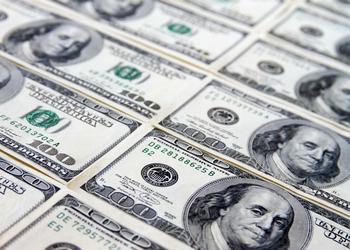
PARIS, France, October 22, 2015 (ENS) – The world’s multi-lateral development banks have pledged to boost climate finance by committing a total of US$100 billion a year by 2020 to help developing countries mitigate and adapt to Earth’s warming climate.
Finance ministers met in Lima, Peru earlier this month in advance of the United Nations Climate Change Conference set for Paris in December, when a legally-binding, universal global climate agreement is due to be signed.

French Foreign Minister Laurent Fabius said, “This is a positive outcome and I think we can say with some certainty that we will reach the US$100 billion commitment.”
Rachel Kyte, World Bank Group Vice President and Special Envoy for Climate Change, said, “It is the beginning of what you need, because if the international community doesn’t roll up it sleeves and get to work this thing is just too big for us.”
The World Bank said it will boost climate financing by a third, making $29 billion a year in additional funding available by 2020.
The Asian, European, African and European multilateral development banks, pledged to double their climate financing, according to French finance officials.
African Development Bank President Akinwumi Adesina said that controlling climate change is a non-negotiable priority. He announced that the Bank will triple its climate financing to reach US$5 billion annually by 2020.
“The reality is that while Africa contributes less than two percent of the total greenhouse gas emissions, its populations suffer disproportionately from negative impacts of climate change,” Adesina said.
The issue of climate finance will be one of the pillars of the 2015 Paris Climate Conference.
The Green Climate Fund, which has reached US$9.3 billion with the first capitalization, including $1 billion from France, will be crucial in order to establish confidence and mobilize private investors.
In the longer term, climate finance must also be strengthened and clarified, to increase visibility and shift investments towards the low-carbon economy.
A report issued this week by the Organization for Economic Co-operation and Development (OECD) found that spending on climate projects was up from US$52 billion in 2013 to $62 billion last year with multilateral development banks making up about 40 percent.
The finance ministers of 20 nations’ most vulnerable to the impacts of climate change held their first meeting in Lima and called on developed countries to increase spending on climate change adaption projects by 50 percent.
The Vulnerable Twenty (V-20) group includes Bangladesh, Costa Rica, the Philippines, and Small Island Developing States and represents about 700 million people.
Countries including Germany, France, the Netherlands, the United States, Sweden and Britain have recently announced increased climate finance.
Under the Copenhagen and Cancún agreements, developed countries collectively committed to mobilizing fast-track financing of up to $30 billion over the period 2010-2012 to combat climate change in developing countries.
After the so-called “fast-track financing” period, developed countries also committed themselves under the Copenhagen and Cancún agreements to mobilizing US$100 billion per year (around €70 billion) in public and private financing by 2020.
To limit the global temperature increase to 2°C by the end of this century, France believes it is essential to adopt a comprehensive and integrated approach to development and combating climate change, involving, in particular, the “greening” of national development assistance policies.
This approach, which encourages the definition and implementation of new, low-carbon and climate-change-resilient development strategies, also implies better donor coordination.
The International Energy Agency has estimated an additional US$1.1 trillion will be needed annually from 2050 to keep the average global temperature increase below 2°C compared to pre-industrial times that scientists say would avoid catastrophic levels of climate change.
Copyright Environment News Service (ENS) 2015. All rights reserved.
© 2015, Environment News Service. All rights reserved. Content may be quoted only with proper attribution and a direct link to the original article. Full reproduction is prohibited.
